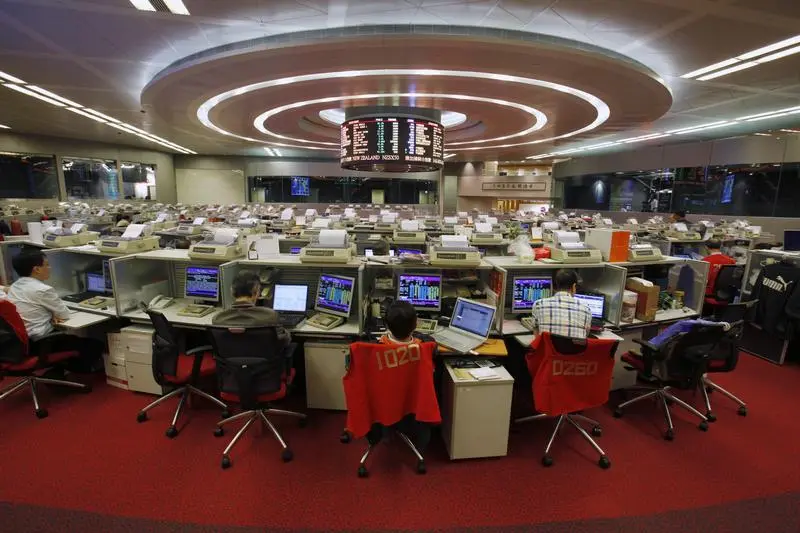PHOTO
HONG KONG - Next Digital Ltd shares were suspended on Monday after authorities froze assets of its jailed owner Jimmy Lai under a new national security law in Hong Kong, while the tycoon pleaded guilty to taking part in an illegal protest in October 2019.
The shares will stay suspended ahead of an announcement by the company about the frozen assets, including Lai's majority stake in the pro-democracy media publisher, Next Digital said.
The move against the Lai's assets has further raised worries about freedom of media and the future of Next Digital, which Lai has been keeping afloat with loans. Next Digital CEO has, however, sough to allay investor concerns saying the frozen assets have no link with the company's bank accounts.
Given this is the first time a listed firm has been targeted under the new security law imposed by China in 2020, it also fuels concerns about the broader investment environment in the Asian financial hub.
Freezing Lai's assets was an important measure aimed at preventing more crimes, Secretary for Security John Lee said, declining to give more details citing ongoing legal procedures.
"It is illegal activities we are dealing with, not press work," the Hong Kong official told reporters.
Lai, a democracy activist and staunch Beijing critic, was sentenced to 14 months in prison for taking part in unauthorised assemblies during anti-government protests in Hong Kong in 2019, and is among the most high profile arrests made under the security law. He faces three alleged charges under the new law, including collusion with a foreign country.
Lai and nine other activists pleaded guilty in the District Court to charges of organising an unauthorised assembly on Oct. 1, 2019, China's national day, as a trial began on Monday.
Lai's guilty plea was widely expected after a similar plea in his previous illegal assembly trial.
Sentencing is expected on May 28.
Lai has a 71.26% stake in Next Digital worth around HK$350 million ($45 million) based on Friday's closing share price.
But the freezing of Lai's assets will not affect company operations as the frozen assets have nothing to do with Next Digital's bank accounts, CEO Cheung Kim-hung told the Apple Daily newspaper.
Next Digital runs the influential pro-democracy tabloid Apple Daily.
A senior management source at Apple Daily told Reuters last week, before the asset freeze was announced on Friday, that the group had tried to "firewall" its media operations from Lai's other businesses, but they believed authorities still had ways to "neuter" the paper, without elaborating.
"It's simply a matter of if they want to do it. If they want to move (on us), they'll move," the source said.
CASH-STRAPPED
Without fresh cash injections, Next Digital can only survive another nine or 10 months, Apple Daily cautioned on Saturday.
A shareholder's loan of HK$756 million, of which HK$500 million had been drawn as of end-September, was an "important source of funding" and may not be available anymore given the freeze, the paper added.
At the time, the group's bank borrowings amounted to HK$262.3 million, repayable within three years and its net cash position was HK$228.7 million.
The paper reported on Friday its Taiwan arm would stop publishing its print version given declining advertising revenue and difficult business conditions in Hong Kong linked to politics. It said "pro-China forces" in Hong Kong were boycotting various advertising resources.
Authorities say media freedom is intact, but warn national security is a red line.
Officials have criticised Apple Daily's coverage and flagged the introduction of "fake news" legislation.
"I just hope that you know our friends outside can withstand the continuing oppression that we are witnessing in Hong Kong, especially with the media," Avery Ng, one of the 10 defendants in Monday's illegal assembly trial, said before entering court.
(Reporting by Donny Kwok, James Pomfret, Sharon Tam, Yoyo Chow, Jessie Pang; Writing by Marius Zaharia; Editing by Himani Sarkar) ((donny.kwok@thomsonreuters.com; +852 2843 6470; Reuters Messaging: donny.kwok.reuters.com@reuters.net))





















